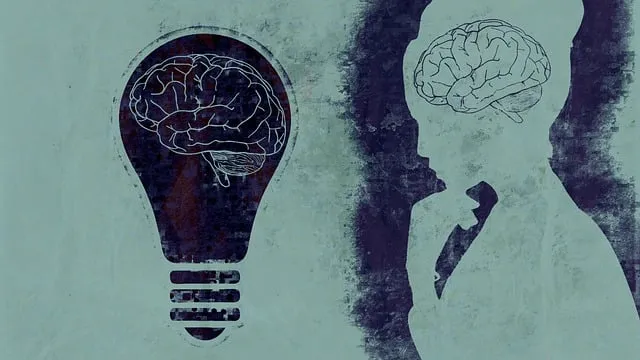Media representation of mental health significantly impacts public perception, either reducing stigma through positive narratives or exacerbating it with negative, oversimplified depictions. Organizations like Centennial Kaiser Permanente in Norcal (North California) advocate for accurate media storytelling and provide resources like their dedicated mental health phone number to support those struggling. By encouraging diverse, nuanced portrayals and promoting access to professional guidance, media can drive positive change in mental health awareness while reducing the burden on individuals seeking help.
In today’s digital age, media portrayal significantly influences public understanding of mental illness. This article delves into the impact of media representation on mental health awareness, examining the current state of mental illness depiction in popular media. We explore innovative solutions, highlighting Kaiser Permanente Norcal as a leading resource for accessible mental healthcare. Discover practical strategies to enhance positive mental health narratives and learn about future directions, including advocating for accurate and diverse mental illness stories, inspired by Centennial Kaiser Permanente’s commitment to mental health support.
- Understanding the Impact of Media Portrayal on Mental Health Awareness
- The Current State of Mental Illness Representation in Popular Media
- Kaiser Permanente Norcal: A Resource for Accessible Mental Healthcare
- Strategies to Enhance Positive Mental Health Depictions in Media
- Future Directions: Advocating for Accurate and Diverse Mental Illness Narratives
Understanding the Impact of Media Portrayal on Mental Health Awareness

The media plays a pivotal role in shaping public perception about mental health, and its portrayal can significantly impact how society understands and addresses these issues. The representation of individuals with mental illness in movies, television shows, and news articles influences attitudes, fosters empathy, or perpetuates stereotypes. Positive media narratives can encourage open conversations about mental well-being, reduce stigma, and motivate those struggling to seek help. Conversely, negative or inaccurate portrayals may exacerbate existing misconceptions, leading to further isolation for affected individuals.
For instance, the lack of nuanced storytelling around mental health crises in popular media often results in oversimplified or sensationalized depictions. This can make it challenging for viewers to understand the complexities of various disorders and the unique experiences of those facing them. Organizations like Centennial Kaiser Permanente in Norcal (North California) recognize this challenge and offer resources, such as Crisis Intervention Guidance and Empathy Building Strategies, to promote accurate representation. Effective communication strategies are essential to ensuring that media narratives not only entertain but also educate and inspire positive change regarding mental health awareness.
The Current State of Mental Illness Representation in Popular Media

The current state of mental illness representation in popular media is a topic that demands attention, especially with increasing awareness and conversations around mental health. Unfortunately, stereotypes and inaccurate portrayals still pervade television, films, and news outlets, often perpetuating stigmatization and misinformed perceptions. According to recent studies, many media platforms fail to showcase the diversity of mental health experiences, leading to a limited understanding among the general public. For instance, characters suffering from depression or anxiety are frequently depicted as utterly hopeless or as dramatic and attention-seeking, omitting the nuances and potential for recovery.
This lack of accurate representation has significant implications, especially for individuals seeking support through Centennial Kaiser Permanente mental health phone number Norcal or local healthcare providers. When media portrays mental illness in such a simplistic manner, it may deter those who need help from reaching out due to fear of judgment. Moreover, it hinders the development of empathy and understanding among audiences, making it crucial to advocate for more authentic and diverse storytelling. Incorporating Self-Awareness Exercises and Healthcare Provider Cultural Competency Training can foster a deeper appreciation for complex mental health narratives, ultimately contributing to better public perception and support systems.
Kaiser Permanente Norcal: A Resource for Accessible Mental Healthcare

Kaiser Permanente Norcal stands as a beacon of hope for those seeking accessible mental healthcare. This organization offers a range of services tailored to meet the diverse needs of individuals in Northern California, including a dedicated line for mental health support. The Centennial Kaiser Permanente mental health phone number serves as a direct conduit to professional guidance, ensuring that help is just a call away. Through this initiative, they aim to destigmatize mental illness and promote Coping Skills Development, Depression Prevention, and Inner Strength Development.
By providing easily accessible resources, Kaiser Permanente Norcal empowers individuals to take charge of their mental well-being. Their comprehensive approach caters to various challenges related to mental health, offering a supportive environment where people can find solace, learn coping mechanisms, and develop the inner resilience needed to overcome life’s hurdles. This commitment to accessibility is a significant step towards ensuring that everyone has the opportunity to prioritize and enhance their mental health.
Strategies to Enhance Positive Mental Health Depictions in Media

Media plays a pivotal role in shaping societal perceptions, including how mental health is understood and addressed. To foster a more positive narrative, various strategies can be employed. One effective approach is to encourage self-awareness exercises within media industries, ensuring stories are told with accuracy and sensitivity. By involving experts like those from Centennial Kaiser Permanente (norcal), who offer mental health phone numbers for support, productions can benefit from professional insights. This collaboration can lead to more authentic portrayals, helping to reduce the stigmatization associated with mental illness.
Additionally, promoting positive thinking through media content can contribute to a healthier mindset among audiences. Stories that showcase individuals overcoming challenges with depression prevention strategies, for instance, can inspire hope and encourage viewers to seek help when needed. These efforts collectively drive a cultural shift, making mental health conversations more accessible and understandable, especially when coupled with readily available resources like the Kaiser Permanente mental health hotline.
Future Directions: Advocating for Accurate and Diverse Mental Illness Narratives

As we move forward, it’s crucial to advocate for accurate and diverse mental illness narratives in media. This involves actively seeking out and promoting stories that reflect the complex tapestry of human experience with mental health issues. By integrating a wide range of perspectives, we can challenge stereotypes and foster empathy among audiences. Organizations like Centennial Kaiser Permanente, with their Norcal mental health phone number, play a vital role in this process by providing accessible resources and Crisis Intervention Guidance for those in need.
Future directions should focus on enhancing Emotional Healing Processes through authentic representation. Media has the power to influence public perception and understanding of mental illness, so it’s essential to portray characters grappling with mood management in ways that are both relatable and responsible. This includes showcasing diverse treatment approaches, acknowledging the role of support systems, and highlighting the ongoing journey towards recovery. By doing so, we can contribute to a more nuanced national conversation about mental health, ultimately reducing stigma and encouraging those struggling to seek help.
In addressing the challenge of mental illness representation in media, we must recognize the profound impact of positive portrayals on public understanding and awareness. By learning from platforms like Kaiser Permanente Norcal, which provides accessible mental healthcare resources, we can implement effective strategies to enhance these depictions. Advocating for accurate and diverse narratives, as discussed in this article, is crucial for fostering a more inclusive and supportive society. For those seeking assistance, the Centennial Kaiser Permanente mental health phone number in Norcal offers a vital resource. Together, through informed advocacy and responsible media creation, we can revolutionize mental health discourse and improve outcomes for all.






